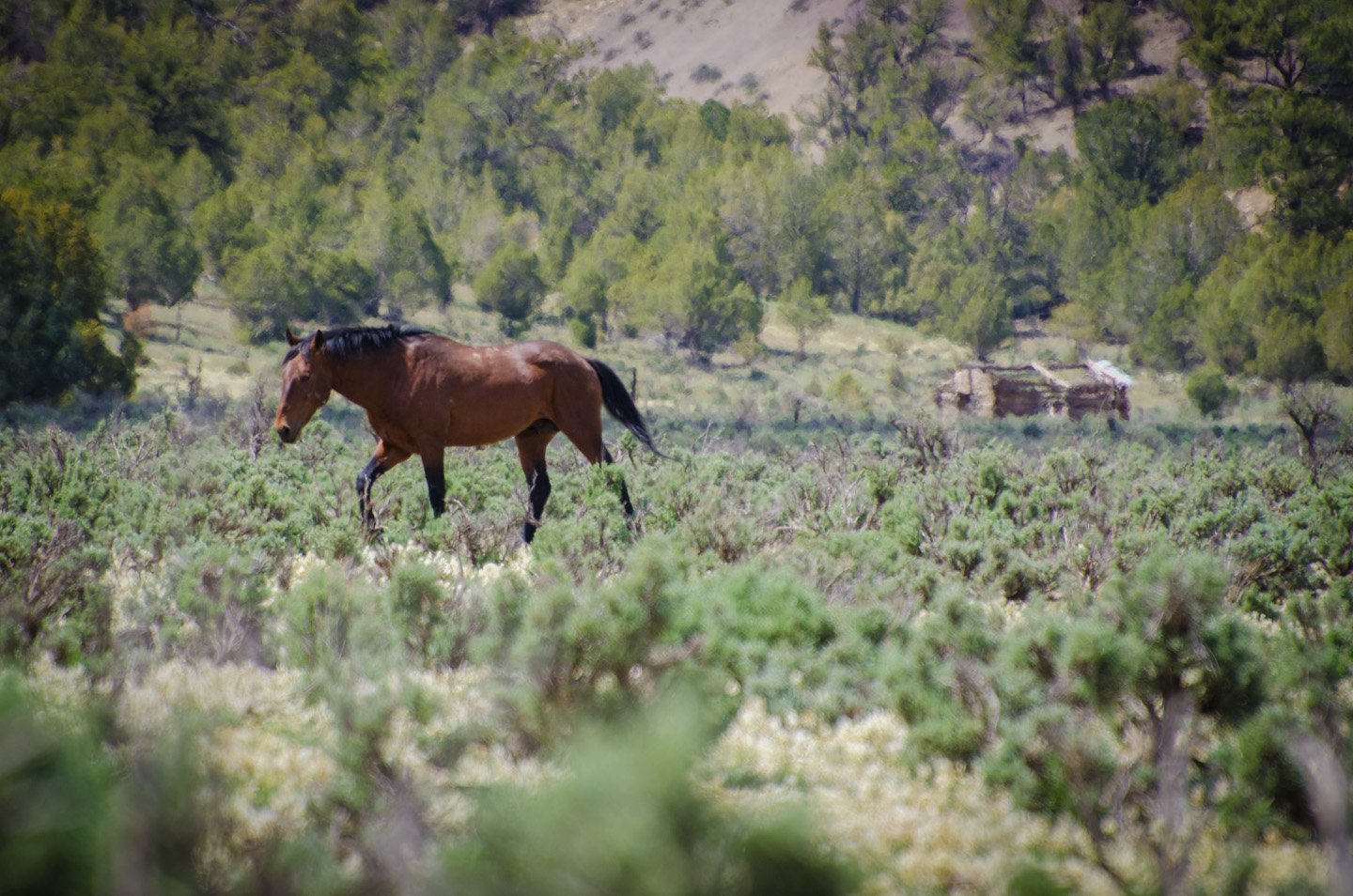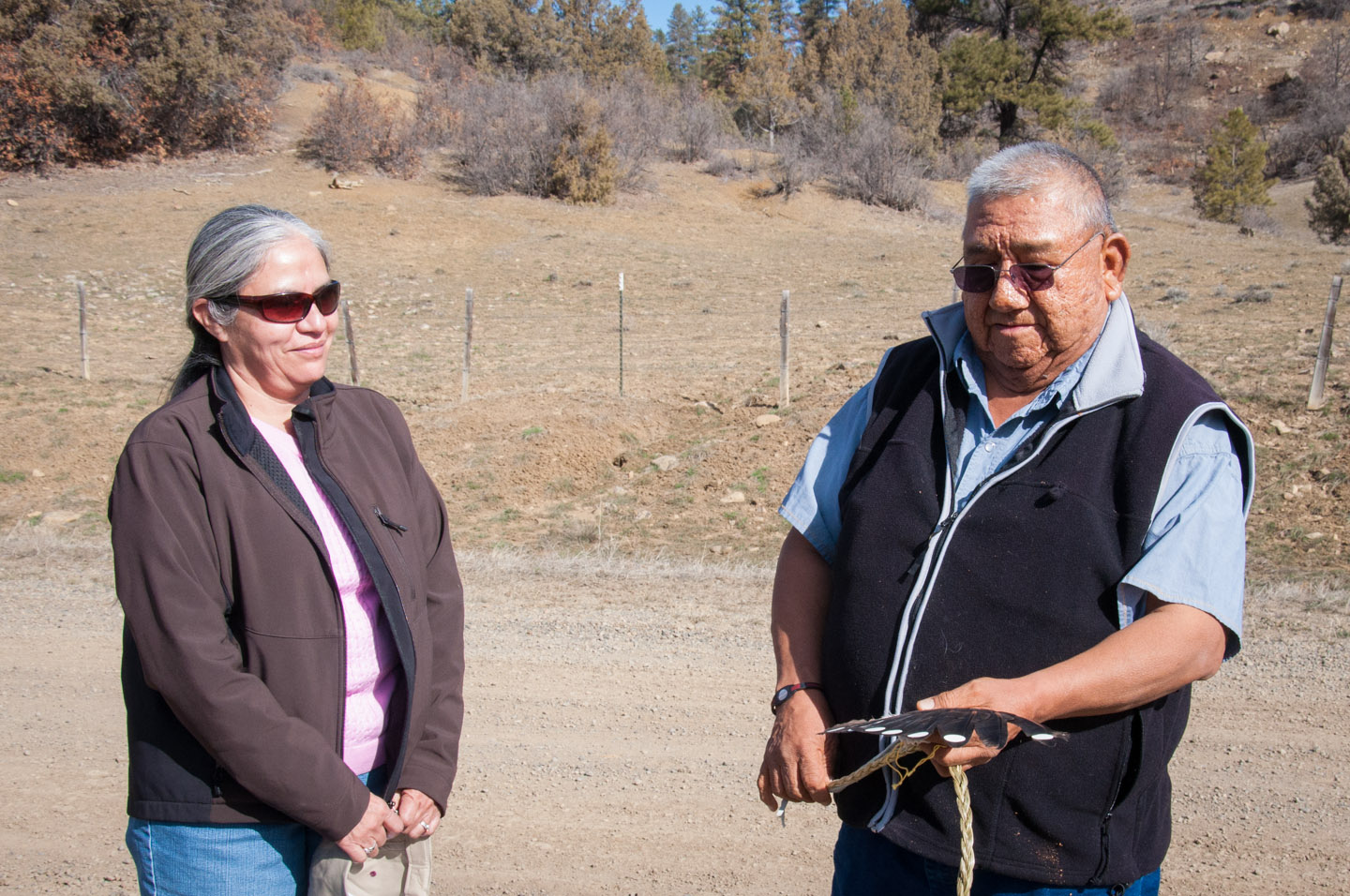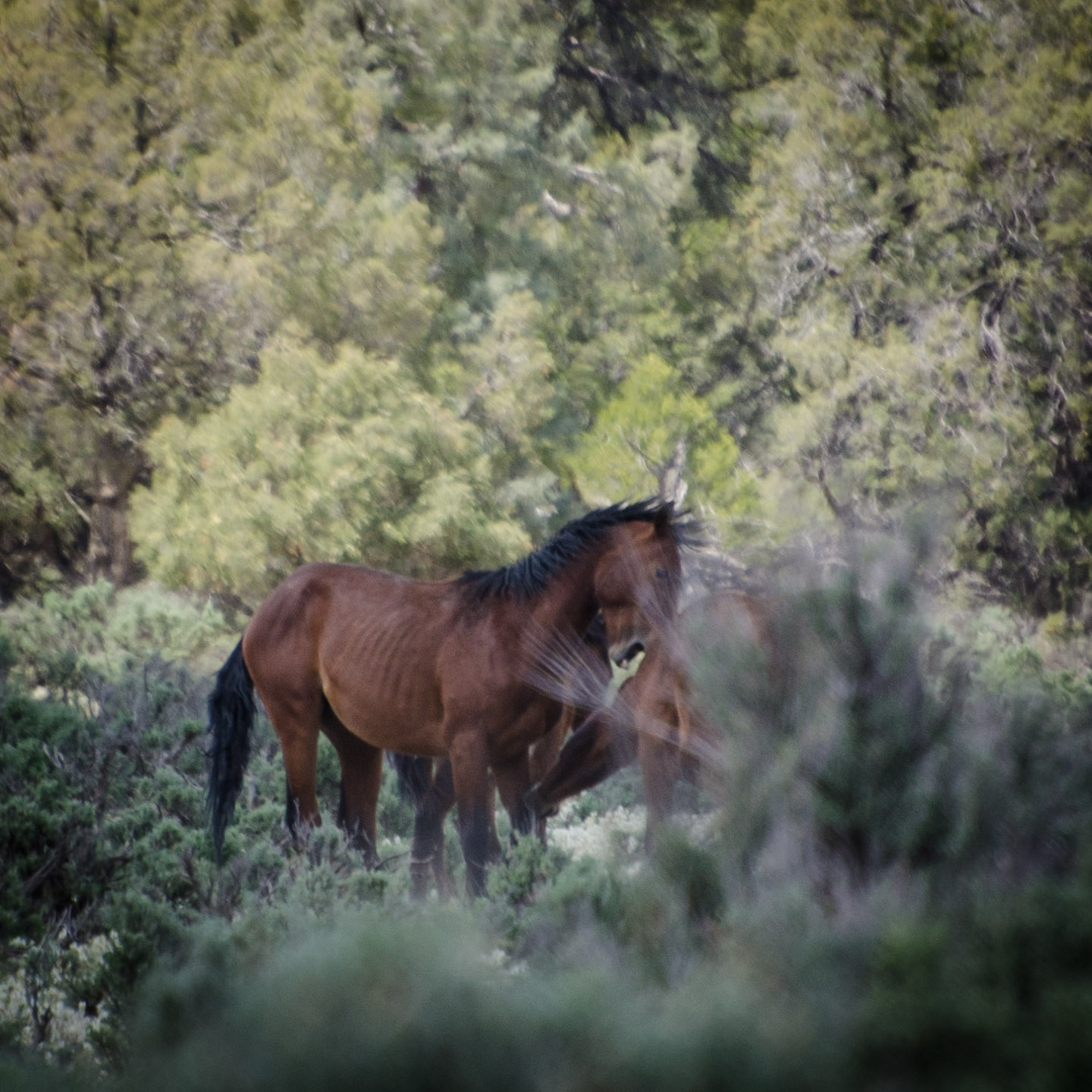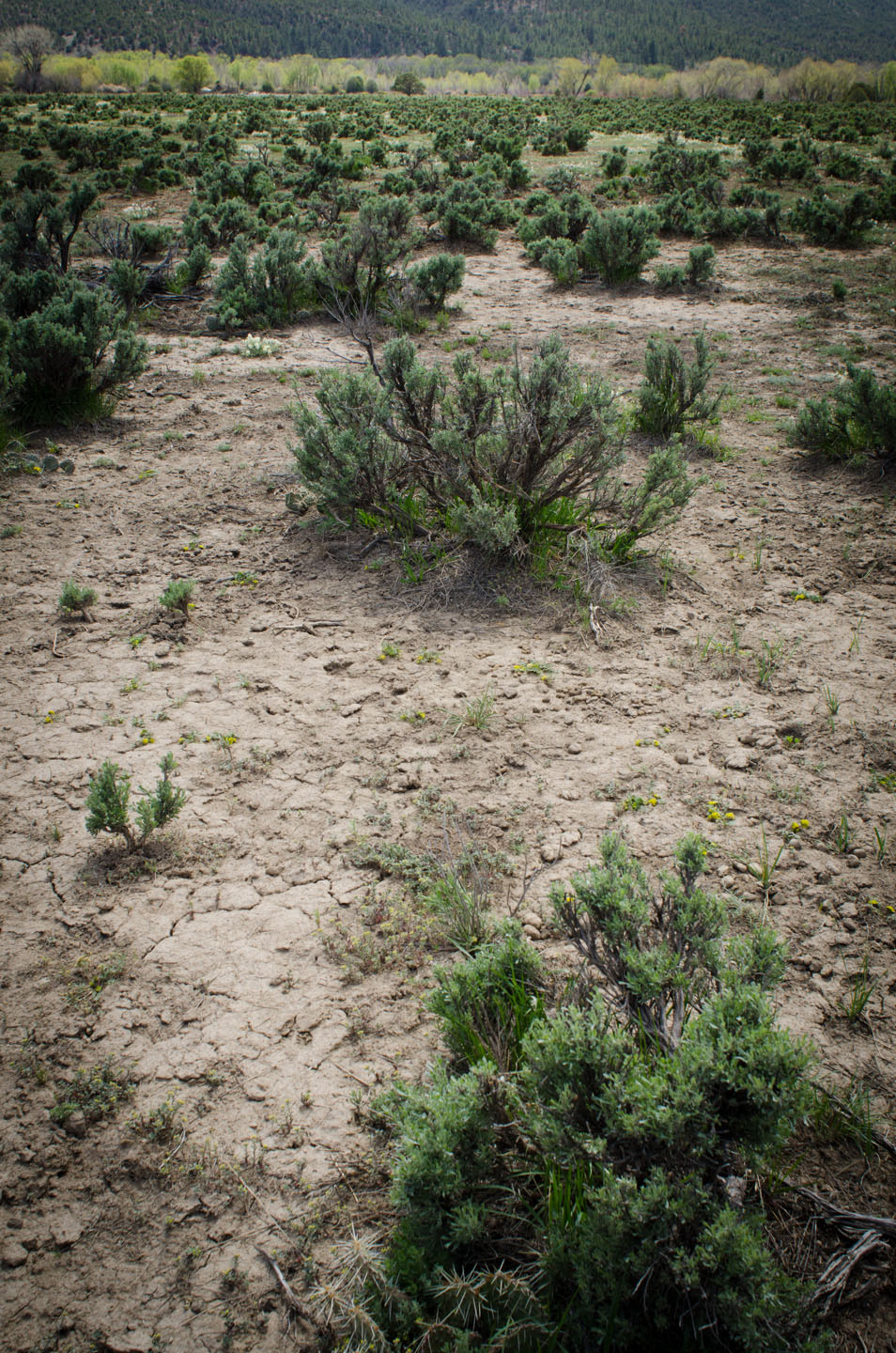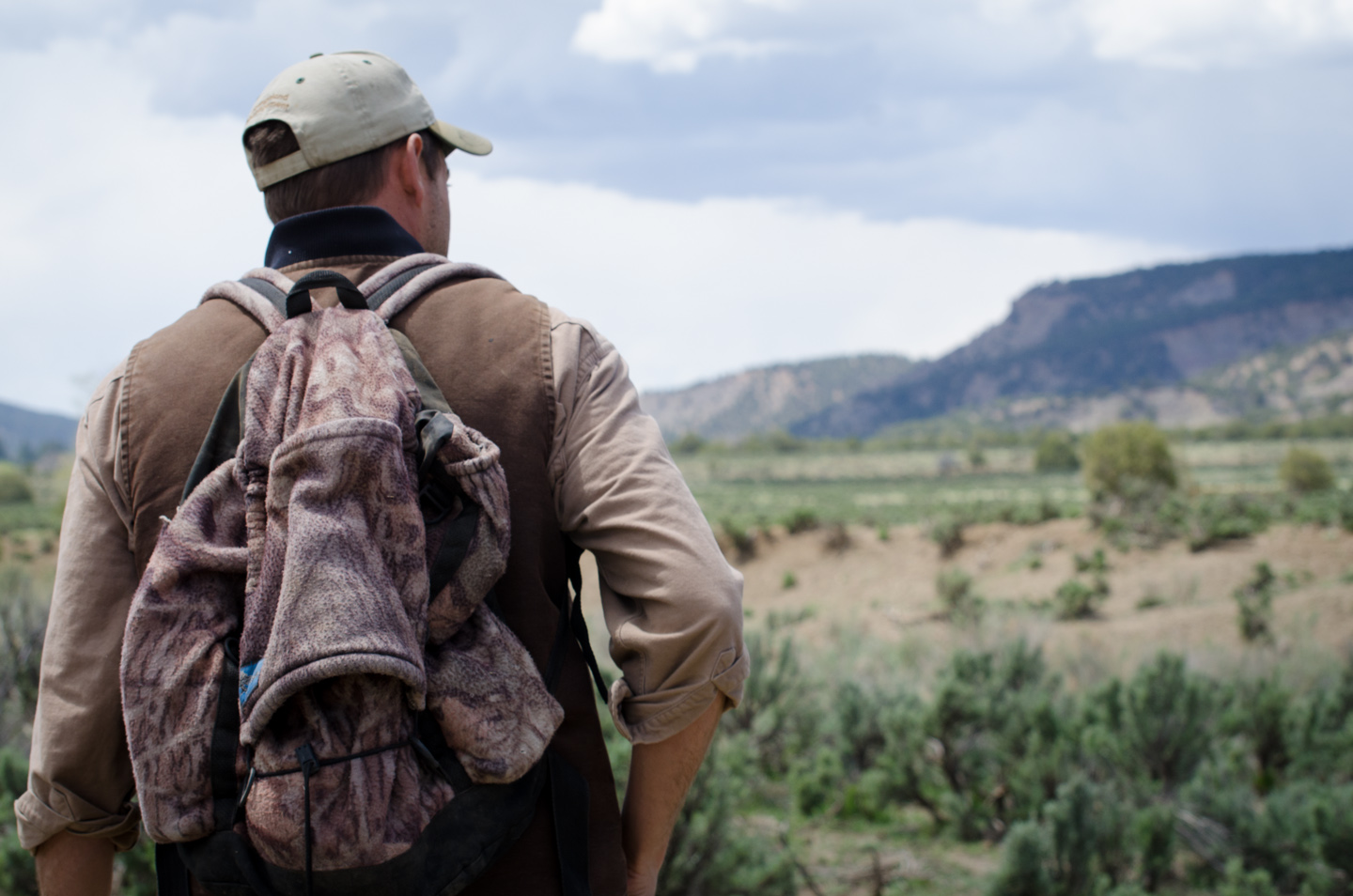Tribe seeks to lure feral horses from reservation


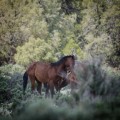


The Southern Ute Indian Tribe’s Range Division is working to remove feral horses from rangeland and wildlife habitat along the eastern side of Southern Ute Reservation lands.
The division is using a contract company, the New Mexico-based Mt Taylor Mustangs, which uses a unique approach that relies on a bait system to lure the horses into captivity.
Impact of feral horses
Horse problems on Southern Ute rangelands started around 2001 with just a dozen feral horses, said Range Division Head Jason Mietchen. Unclaimed, these horses bear no ownership brands and possess no real market value, he said.
Over time, the population of horses turned loose has begun compounding — not just on Southern Ute lands, but across the West, he said.
“[It creates a] huge impact to tribal lands,” Mietchen said, adding that the animals will graze year round when left unchecked.
That creates a trickle-down effect on tribal members, who need the land for their own livestock to graze. Grazing leases are allocated to tribal members for their livestock — mostly cattle — and then managed by the Range Division to ensure sustainability.
Horses consume much of the native and introduced grasses, along with other shrub and tree species, prior to the arrival of tribal members’ livestock — typically around June 1 of each year — and compete with wildlife, such as elk and deer herds native to the area.
“The reservation acts as an important winter range for deer and elk. Having good forage on reserve [is important],” Southern Ute Wildlife Biologist Aran Johnson said. “Year-round grazing depletes winter range resources.”
The presence of the feral horses leads to a “general habitat degradation,” Johnson said.
“If the forage resources are overused to such an extent, the landscape really suffers,” he said. “[It causes] everything from increased erosion [to] increased weed infestation.”
Some evidence suggests horses will even show territorial behavior, pushing wildlife out of their preferred grazing areas and further disrupting the ability to forage, Johnson said.
“[Horses] hang out in riparian areas. In terms of natural resources, [these areas are] high value, crucial to ecosystem health for their biodiversity,” Mietchen said.
Once the damage is done, it’s almost impossible to restore the natural vegetation, which is healthy for the ecosystem and desirable for grazing, Mietchen said. Drought magnifies the problem, he added.
Management solutions
There are approximately 120 to 130 horses moving freely between private, tribal and U.S. Forest Service lands on the east side of reservation, said Southern Ute Range Technician Doug Krueger, citing numbers provided by the Division of Wildlife Resource Management during its annual game count in February (See The Southern Ute Drum’s coverage in the Feb. 8 issue).
“The tribe, membership and Range have realized this is a problem,” Mietchen said.
The proposed solution lies with Mt Taylor Mustangs. Owner Dan Elkins is an experienced bait trapper who believes in an approach that requires “minimal human contact.”
“[Elkins] comes highly recommended from the Forest Service and Bureau of Land Management,” Mietchen said. “This is the route the tribe has chosen for cultural reasons.”
Horses have no natural predators in the area, Krueger said. Mountain lions, which are capable of taking down a horse, tend to prey on the plentiful deer, which make for an easier meal.
Krueger said feral horses can be protective and even dangerous when confronted.
“The tribe is working to lessen the impact,” Mietchen said. “Pretty much every tribe in the West has a feral horse problem.”
The Jicarilla Apache Nation, the Carson National Forest, Bureau of Land Management lands, and the San Juan National Forest all share property boundaries with the tribe.
“Working to get them off, and keep them off — which ties into the 2013 Archuleta Mesa State Line Fencing project — is our goal,” Mietchen said. “Horses, once captured, are turned over to tribe’s animal control officials.”
The horses are held for 10 days, undergoing a brand inspection pursuant to tribal code, then sold to preauthorized buyers, who will likely repurpose the animals, according to Sgt. Jake Candelaria of the Southern Ute Tribal Rangers and Animal Control Program.
Mietchen said the tribe will likely continue this type of work annually if successful.

